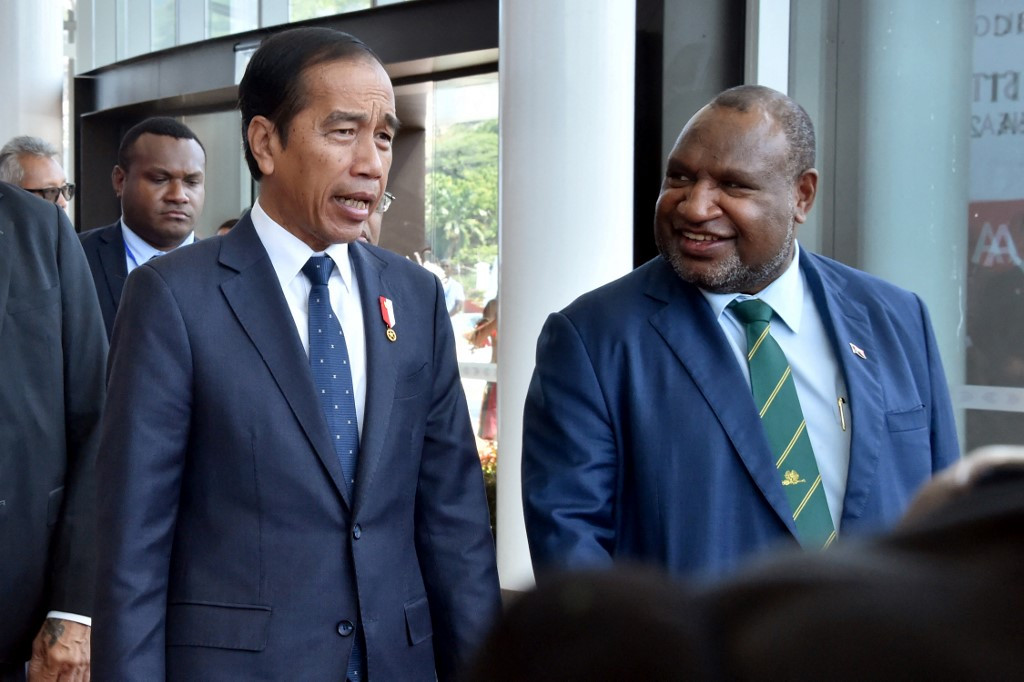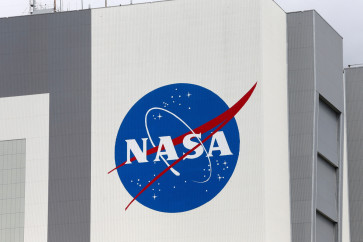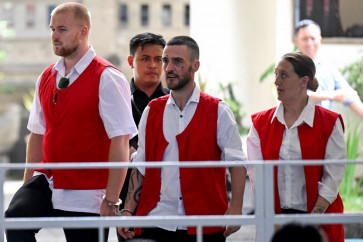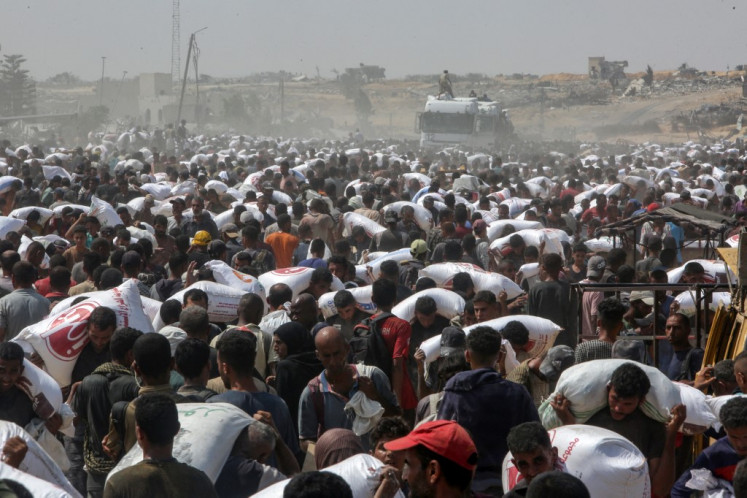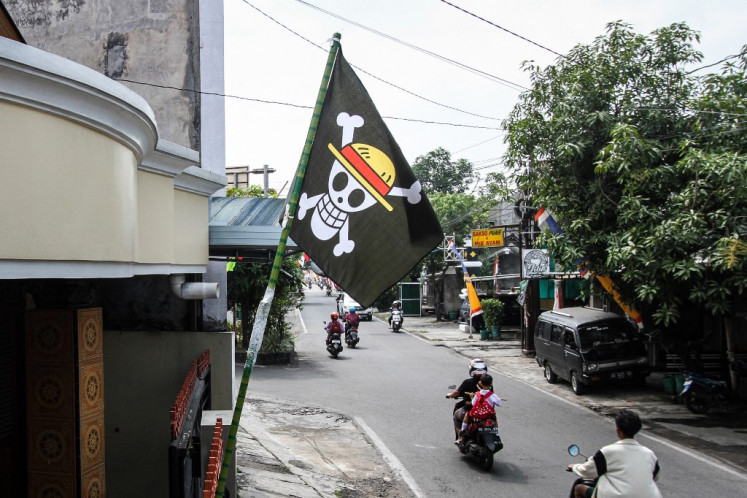Popular Reads
Top Results
Can't find what you're looking for?
View all search resultsPopular Reads
Top Results
Can't find what you're looking for?
View all search resultsIndonesia’s understanding of Pacific should go beyond rhetoric
The primary driving force behind our attention to the Pacific region is the strategic interest of constraining issues in Papua.
Change text size
Gift Premium Articles
to Anyone
E
arly this year, Foreign Minister Retno LP Marsudi proclaimed that Indonesia is a Pacific nation. This statement echoed a former Indonesian ambassador to New Zealand, who said that Indonesia was home to the largest Pacific race.
Both statements are rhetorical without a genuine understanding of the Pacific region. The Pacific identity is barely reflected at the domestic level. As a country, we have long been perceived as part of Asia, not the Pacific.
The main reason we should increase our attention to the Pacific is to help Papua deal with its human rights and political issues. As an important regional actor in the Asia-Pacific, we need to strive for a critical understanding of the region in order to play a more central role.
In the past few years, the Pacific has risen as a fulcrum for geopolitical tensions between big powers, chiefly the United States and China. Other crucial actors, such as Australia, New Zealand, France, the United Kingdom, Germany, Canada, Japan, South Korea and India have intensified their presence either to jump on the bandwagon or to balance the geopolitical tension in the region.
But the increasing tension has sidelined the actual concerns of Pacific Island nations. The Pacific islands have long been perceived as dependent on international donors. Yet, in the past decade, the island countries have taken actions to be respected and accommodated in international politics.
The island countries have created the Blue Pacific as their distinctive narrative, strategy and vision to address climate change as the primary existential threat, not the Indo-Pacific narrative which focuses on economic imperatives and security domination and is championed by many countries.
In other words, Pacific nations are no longer the passive recipients of development aid and peripheral actors in their region. They are poised to determine their own priorities in solidarity at the regional and global levels. This stance is the foundation for external parties to engage with the Pacific Island nations.
A Pacific identity is still “uncharted territory” for Indonesia, and the primary driving force behind our attention to the Pacific region is strategic interests in constraining issues in Papua. Since our first engagement with the region in the mid-1980s, the Pacific has been mostly absent from our diplomatic agenda.
Development aid, financial grants and technical assistance have been the main instruments to project and normalize our presence in the region. Adding to those are a few high-level visits and regional development forums to boost Indonesia’s presence in the region, including President Joko “Jokowi” Widodo’s recent visit to Papua New Guinea (PNG), and the Indonesia-Pacific Development Forum.
PNG is the only Pacific country to be visited by President Jokowi, who has now visited the country twice in his nearly 10 years in office. After Fiji Prime Minister Siteveni Rabuka met Benny Wenda, the Papuan independence leader, in February, Fiji was no longer seen as a strategic partner, and left PNG as the prominent supporter of Indonesia’s interests in the Pacific.
For Indonesia, a better relationship with the Pacific region is important not only to defend national interests, but also to project the country's solidarity with others regarding shared problems and to gain economic and diplomatic benefits from one of the world's critical shipping chains, without siding with competing powers.
Given Indonesia’s increasing presence in the region and its rhetoric of being part of the Pacific, the question remains; to what extent do we understand and embed a Pacific identity at the domestic level?
Most of us do not understand the Pacific region or its people and interests. If the term Pacific comes into discourse, it is mostly about the internationalization of issues in Papua. The Pacific is, for the most part, left out of university-level teaching.
The Pacific receives scant attention compared to other regions such as Europe, North America, Africa and East Asia. Although Indonesia shares a maritime border with the Pacific region, there have been limited courses regarding the region and its dynamics.
Although thousands of Indonesian students have received graduate educations in Australia and New Zealand, Indonesia has no prominent expert on the Pacific. There is only one research center focusing on the Pacific in Jayapura, Papua.
The lack of public discourse about the Pacific region means we cannot anticipate or adopt strategic diplomatic actions to respond to geopolitical tensions or to protect our interests. A circumscribed understanding of the Pacific would also help the Foreign Ministry design and pursue a specific agenda beyond dealing with problems in Papua.
As a maritime country, we share multiple problems with the Pacific nations, such as climate change, disaster management, illegal fishing, marine pollution, drug smuggling, coastal-based infrastructure and women empowerment. Indonesia has the capacity to collectively address regional issues through bilateral cooperation or institutional engagement, such as the Pacific Island Forum.
The Foreign Ministry’s founding of the Directorate for Pacific and Oceania is highly welcomed. Yet, without sufficient financial support and human capital, such an office will not generate influential change in the Pacific.
Compared with the other countries that are becoming more involved in the region, such as India and South Korea, Indonesia’s highest diplomatic engagement is constrained to ministerial meetings. In contrast, India initiated the Forum for India-Pacific Islands Cooperation (FIPIC), which met for the third time in May of this year in PNG. South Korea launched its first-ever South Korea Pacific Islands Summit in May 2023.
Neither country has ever claimed to be part of the Pacific, but their policies and initiatives display strong commitment, not merely rhetoric, to engage with the region.
Indonesia initiated the Pacific Exposition, a cultural and trade event, and the first Indonesia Pacific Development Forum. Most recently, following the visit of President Jokowi to Port Moresby, the Indonesian government will sponsor thousands of PNG students to attend universities in Indonesia.
In this regard, continuity is key. Challenges of financial support and collective political will have hampered our engagement in the region. It is critical that we improve our knowledge of the Pacific to underpin our regional engagement in the region.
For Indonesia, the Pacific region remains crucial and strategic. As a battleground for geopolitical tensions, Indonesia needs to pursue strategic engagement to deal with the effects of geopolitical competition and, most importantly, to participate in resolving shared regional problems.
Indonesia must initiate public discourse of the Pacific region, address the concerns over the human rights problems in Papua, and actively advocate for the Blue Pacific, not merely the Indo-Pacific narrative, as a sign of shared commitment to the Pacific region and its people.
***
The writer is a researcher at the Australian National University.

